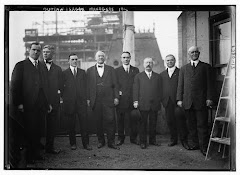Rating: 1 Pierogi for (lack of) readibility, 5 pierogies because Tolkien was clearly much smarter than me.
Review: It was SLOW and PAINFUL, but I finally finished The Silmarillion. I like Tolkien well enough. I read The Hobbit and the Lord of the Rings, and saw the LOTR movies, but that's about it. My interest in the Silmarillion isn't attributable so much to my interest in Tolkien, as it is to a class I took in college. The class was an Anthropology/Linguistics course, and focused on artificial languages. The professor was a little koo-koo-bananas, but he really knew his stuff, and you could tell he came into class every day super excited to share what he knew. In the class, we talked about the different languages Tolkien invented, as well as Klingon, Esperanto, and a few other topics I don't entirely recall. About 75% of the class was devoted to Quenya and Sindarin-- Tolkien's 2 "big" languages. The Simarillion, as the Middle Earth creation story, was a constant topic in the class. The book was recommended reading, but I didn't get around to it at the time. Since then, I've wanted to get back to it.

The Silmarillion reads a lot like the Bible-- the language is awkward, the story is told from a very detached third party, and each of the characters and places have several different names. If you're reading it on your own, it's very hard to keep everything straight. There is a comprehensive glossary and other resources in the back of the book, but I found flipping back and forth to be tiresome, so I didn't bother. I would have gotten a lot more out of the book if I had actually read it back when I was taking that class in college. If you're able to find like-minded people interested in doing a "Silmarillion study" and working through it together, you could likewise get a lot more out of the book. From where I stand, I only really comprehended the last two parts of the book. One of them was an Atlantis-type story, and the other one was the setup for Lord of the Rings and I probably just recalled it because I remembered seeing it at the beginning of The Fellowship of the Ring. Other than those two parts, all I remember is that there were Valar, and Elves, and Men, and Orcs, and good and evil, and lots of characters with lots of children, and lots of battles, and jewels and rings.

All that being said, Tolkien proves his brilliance through this book. It's not going to be on Oprah's book club anytime soon because it's not a fun read in the traditional sense, but the obvious depth of Tolkien's imagination and efforts is impressive. Tolkien created 2 languages, multiple races that span generation after generation, and an entire new world and its history. Not every great work is an easy read. Reading The Silmarillion is something I'm glad to have done, although I wish I had done a better job of it and come out of it retaining more of the stories, and their characters.
 Reviewer: Elle Ewok
Reviewer: Elle Ewok


